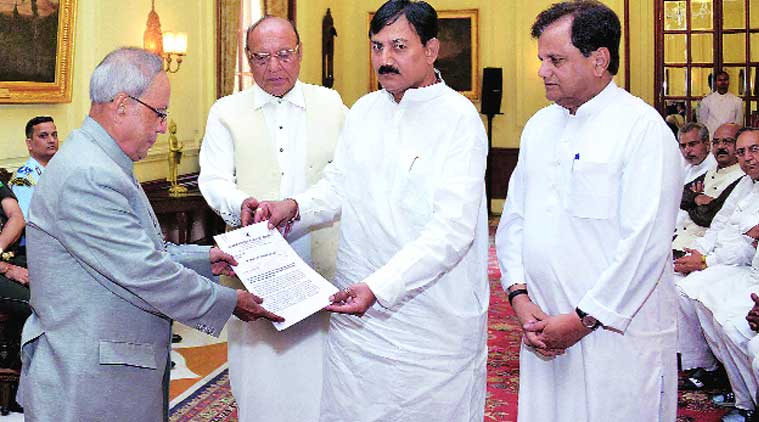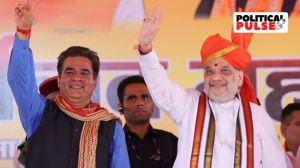- India
- International
Congress leaders from state urge President not to sign Gujarat anti-terror bill
The bill was first introduced in 2003 by then Chief Minister Narendra Modi and was rejected in 2004 and 2008 by the then Presidents.
 Shankarsinh Vaghela, Bharatsinh Solanki and Ahmad Patel submit a memorandum to President Pranab Mukherjee in New Delhi on Saturday. (Source: PTI )
Shankarsinh Vaghela, Bharatsinh Solanki and Ahmad Patel submit a memorandum to President Pranab Mukherjee in New Delhi on Saturday. (Source: PTI )
Senior Congress leaders from the state, led by Sonia Gandhi’s political secretary Ahmed Patel, on Saturday submitted a memorandum to President Pranab Mukherjee, requesting him not to give his assent to the controversial Anti-terror bill passed by the state Assembly on March 31 this year.
Other leaders in the delegation included state party president Bharatsinh Solanki, Leader of opposition in the state Assembly Shankersinh Vaghela and AICC spokesperson Shaktisinh Gohil. The bill in a different form was earlier returned by former Presidents APJ Abdul Kalam and Pratibha Patil, directing the state government to drop the controversial clauses from it.
[related-post]
Named the Gujarat Control of Terrorism and Organised Crime (GCTOC) Bill, 2015, it has been approved by state governor O P Kohli and sent to the Union Home Ministry and the President of India for their approval. The leaders told the President that the bill, if made a law, would be very dangerous for the opposition as it could be used against political rivals. The bill makes confessions made before a police officer admissible in court and also allows the police to tap internet and telephonic conversation and produce them as evidence in the court. The Congress said this would encourage the police to use third-degree methods to extract confessions as the bill also prohibits action from being taken against the police who act with “good intentions”.
The bill also provides for extension of the period of investigation from the stipulated 90 days to 180 days. The bill was first introduced in 2003 by then Chief Minister Narendra Modi and was rejected in 2004 and 2008 by the then Presidents.
Apr 26: Latest News
- 01
- 02
- 03
- 04
- 05






























